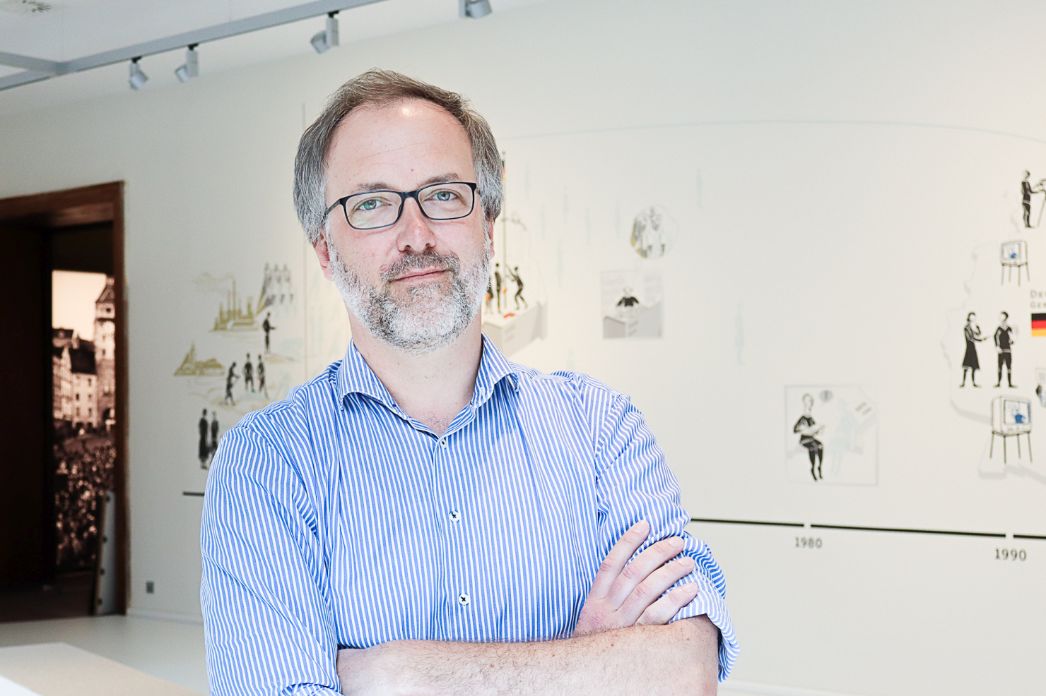
Studied Eastern European History, Polish Literature and Southeast European Studies in Jena, Lublin and Krakow, M.A. 2007, doctorate 2010. 2010-2015 research associate and curator at the Museum of the Second World War in Gdańsk, 2015-2018 scientific director of the "Europäisches Kolleg Jena. Das 20. Jahrhundert und seine Repräsentationen /Representing the 20th Century", 2018-2023 research associate at the Buchenwald and Mittelbau-Dora Memorials Foundation and since 2023 director of the Museum of Forced Labor under National Socialism in Weimar.
Research focuses:
History of German-Polish relations, everyday history of state socialism, history of World War II, historical museums
Publications:
Monograph:
Das polnische Fenster: Deutsch-polnische Kontakte im staatssozialistischen Alltag Leipzigs 1972–1989, Munich 2012.
Essays:
“Polenfeindlichkeit in der DDR: Leipzig in den 1970er- und 1980er-Jahren”, in: Jahrbuch für Historische Kommunismusforschung 2022: Konservatismus und Autoritarismus im Staatssozialismus, pp. 69–84.
“Wie zeigt man lokale Weltgeschichte? Das Europäische Solidarność-Zentrum in Gdańsk”, in: Jörg Ganzenmüller (ed.): Die revolutionären Umbrüche in Europa 1989/91: Deutungen und Repräsentationen, Cologne and Vienna 2021, pp. 181–203.
“Rosenkranz vs. Bordell oder polnische Geschichte im Kontext: Eine kursorische Einschätzung zum Museum des Zweiten Weltkriegs in Gdańsk”, in: Ljiljana Radonić and Heidemarie Uhl (eds.): Das umkämpfte Museum: Zeitgeschichte ausstellen zwischen Dekonstruktion und Sinnstiftung, Bielefeld 2020, pp. 55–72.
(with Juliane Tomann) “Gerichte statt Geschichte? Das Museum des Zweiten Weltkrieges in Gdańsk”, in: Zeithistorische Forschungen 16 (2019), 1, pp. 106–111.
(with Anna Muller) “War, Dialogue, and Overcoming the Past: The Second World War Museum in Gdańsk, Poland”, in: The Public Historian 39 (2017), 3, pp. 85–95.
“Streit um das Museum des Zweiten Weltkriegs in Gdańsk: Wie soll man ‘polnische Geschichte’ zeigen?” in: Zeitgeschichte Online (6.4.2017).
“Playing chess in concentration camps: An immaterial and material practice of stabilization”, in: Rocznik Antropologii Historii 3 (2013), 2/5, pp. 291–307.
“Eine polnische Insel in Leipzig? Das Polnische Informations- und Kulturzentrum in Leipzig (1969 1989)”, in: Journal of Modern European History 8 (2010), 2, pp. 243–265.
“‘Brüderbund und Freundschaft mit den sozialistischen Ländern darf nicht spekulativ genutzt werden.’: Deutsch-polnischer Schleichhandel in Leipzig als Konsumkultur ‘von unten’”, in: Comparativ 19 (2009), 6, pp. 50–68.
Collaboration on exhibitions:
Permanent exhibition in the Museum of the Second World War in Gdańsk (2017)
European Liberation and the Second World War (2014)

